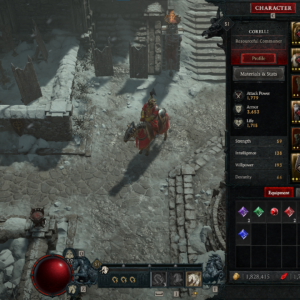
By Helen Miller, District 4 Councillor
First Nations (FNs) chiefs, councils and educators all across the country are excited with the announcement of the $8.4 billion in funding by the new Liberal government. Bit of concern that the FN leaders are putting so much hope and faith in Prime Minister Justin Trudeau and our newly-appointed Indigenous Affairs Minister Carolyn Bennett. We have to remember that the leaders may have changed but the bureaucrats working behind the scenes are the same ones with the same mindset as the former Conservative government.
Assembly of First Nations (AFN): In July this assembly was in Niagara Falls and hosted by Six Nations. In addition to attending the assembly all day I attended the First Nations Gaming Saskatchewan Experience information session where gaming representatives proposed the establishment of a National Gaming Association that gives FN jurisdiction over gaming. Right now the province claims jurisdiction over all gaming.
Ontario’s Free Tuition Program: I attended this session to find out what the Ontario Free Tuition initiative was about. This initiative is being promoted by Premier Kathleen Wynn. The Federal and Provincial governments have joined forces to transform the Ontario Student Assistance Program (OSAP). A few years back I wrote a letter to the newspapers cautioning the post-secondary office against advising our people to access the OSAP program for school funding even though the need was there. At that time I worried if enough First Nations students started accessing the OSAP program the powers that be would one day ask themselves: Why are allocating First Nations post-secondary funding when so many are willing to borrow money from OSAP? I think the powers that be have smelled the coffee. Data collection shows more than 6,000 self-identified Indigenous students have accessed OSAP. I believe with the provincial and federal governments partnering in the transformation of OSAP it is the beginning of the end of our postsecondary funding as we know it today. I have requested an information session take place with our post-secondary education office staff and board.
I also attended the Youth information session. Six Nations delegation also met with Minister Bennett to discuss several issues but as usual made no commitments regarding the education funding and the lifting of the two per cent cap on education. Paulette Trembly, CEO under former Chief Roberta Jamieson, is the new education director for the AFN.
Chiefs of Ontario (COO): In June I attended the assembly in Thunder Bay. Reports were made by the Ontario First Nations Young Peoples’ Council. Councillor Mark Hill and Chezney Martin represent Six Nations. The Ontario First Nation Women’s Council reported on their work. Sandy Martin, director at Ganohkwasra represents Six Nations.
Education: One of the problems Grand Chief of the AIAI Gord Peters said is that FN doesn’t have education systems; what we have, he said, is education funding. Presentations and resolutions were done on Charting Our Own Path Forward, Post- Secondary Student Support Program and the High Cost of Special Education. These priority issues/resolutions were forwarded to the AFN agenda.
High Cost of Special Education: There was concern expressed that some FNs communities always have a surplus at the end of the school year. This surplus has to be returned to INAC. There is an estimated surplus of $1 million to $5 million being returned. COO’s FNs Coordination Unit wants the surplus funding to be reallocated to FNs.
Currently I am in the process of completing a pros and cons paper on Six Nations assuming responsibility for education. This is based on what I have heard and learned over the past few years. I’ve attended a lot of meetings on education and I sit on several education-related committees as well as my other nine internal/external committees. Locally, I’ve dealt with several issues and concerns raised by people from all districts. I don’t just help people from my district; I try to help everyone. So this report is just a snapshot of the work I’ve done this period.
In the near future there are critical decisions that SNEC and the community will have to make about education. But right now there is more work to be done. This is why at our July meeting the Education Committee decided to recommend to SNEC that Six Nations not move forward with education until the 57th Elected Council is in place. This motion was carried.






